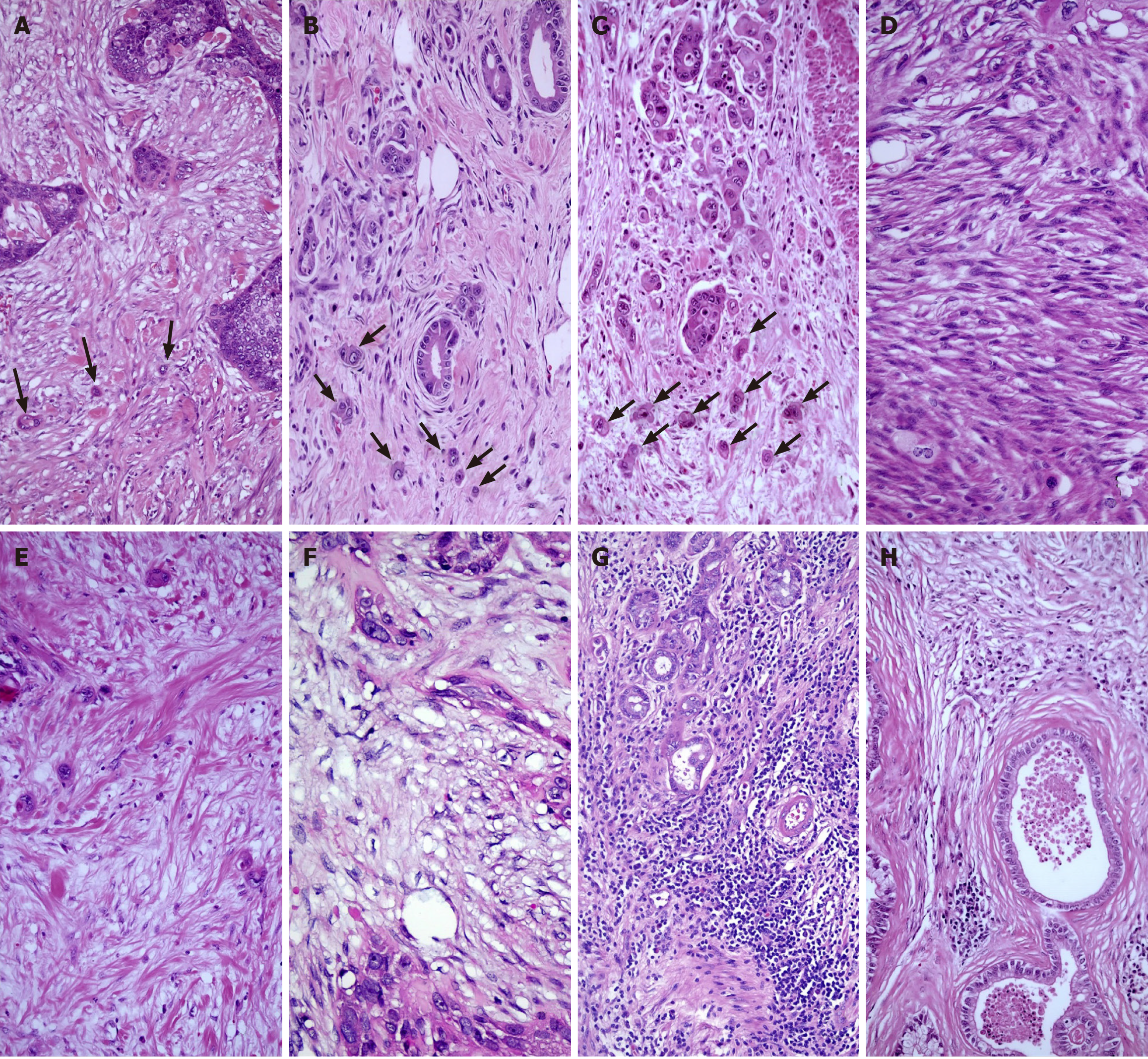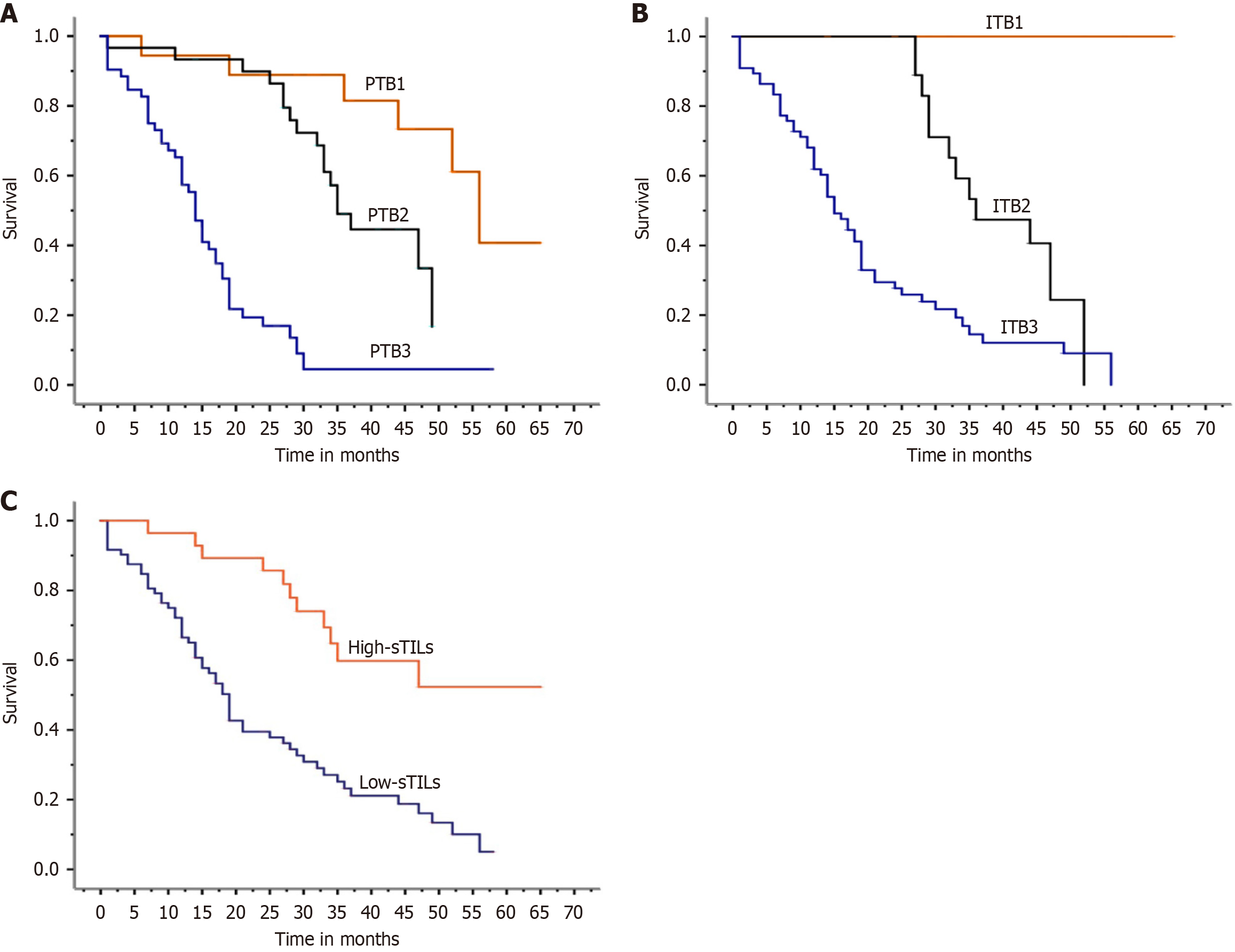Copyright
©The Author(s) 2025.
World J Gastrointest Oncol. Jun 15, 2025; 17(6): 107021
Published online Jun 15, 2025. doi: 10.4251/wjgo.v17.i6.107021
Published online Jun 15, 2025. doi: 10.4251/wjgo.v17.i6.107021
Figure 1 Tumor budding, desmoplastic reaction, and tumor-infiltrating lymphocytes.
The grade was assessed according to the International Tumor Budding Consensus Conference recommendations. A: Tumor budding (TB) 1 (1-4 tumor bud/hot spot), × 200; B: TB2 (5-9 tumor bud/hot spot), × 200; C: TB3 (10 tumor bud/hot spot), × 200; D: Desmoplastic reaction (DR) 1. Mature stroma composed of tightly packed collagen fibers, × 400; E: DR2, intermediate stroma consisting of areas of collagen that resemble keloids, × 400; F: DR3, immature stroma with myxoid alterations; G: Pancreatic ductal adenocarcinoma with high tumor-infiltrating lymphocytes in the tumor stroma (≥ 5%), × 100; H: Pancreatic ductal adenocarcinoma with low tumor-infiltrating lymphocytes (< 5%), × 200. Hematoxylin-eosin staining. Black arrows indicate tumor buds.
Figure 2 Kaplan-Meier survival analyses in the cohort.
A: Peritumoral tumor budding (log-rank test, P < 0.001); B: Intratumoral budding (log-rank test, P < 0.001); C: Tumor infiltrating lymphocytes according to the scoring (log-rank test, P < 0.05). PTB: Peritumoral tumor budding; ITB: Intratumoral budding; sTILs: Tumor infiltrating lymphocytes according to the scoring.
- Citation: Alpsoy A, Yavuz A, Simsek K, Altunay B, Karaca M, Unal B, Bassorgun CI, Tatli AM, Elpek GO. Evaluation of tumor budding, desmoplastic reaction, and lymphocytic infiltration in predicting survival for pancreatic ductal adenocarcinoma. World J Gastrointest Oncol 2025; 17(6): 107021
- URL: https://www.wjgnet.com/1948-5204/full/v17/i6/107021.htm
- DOI: https://dx.doi.org/10.4251/wjgo.v17.i6.107021










